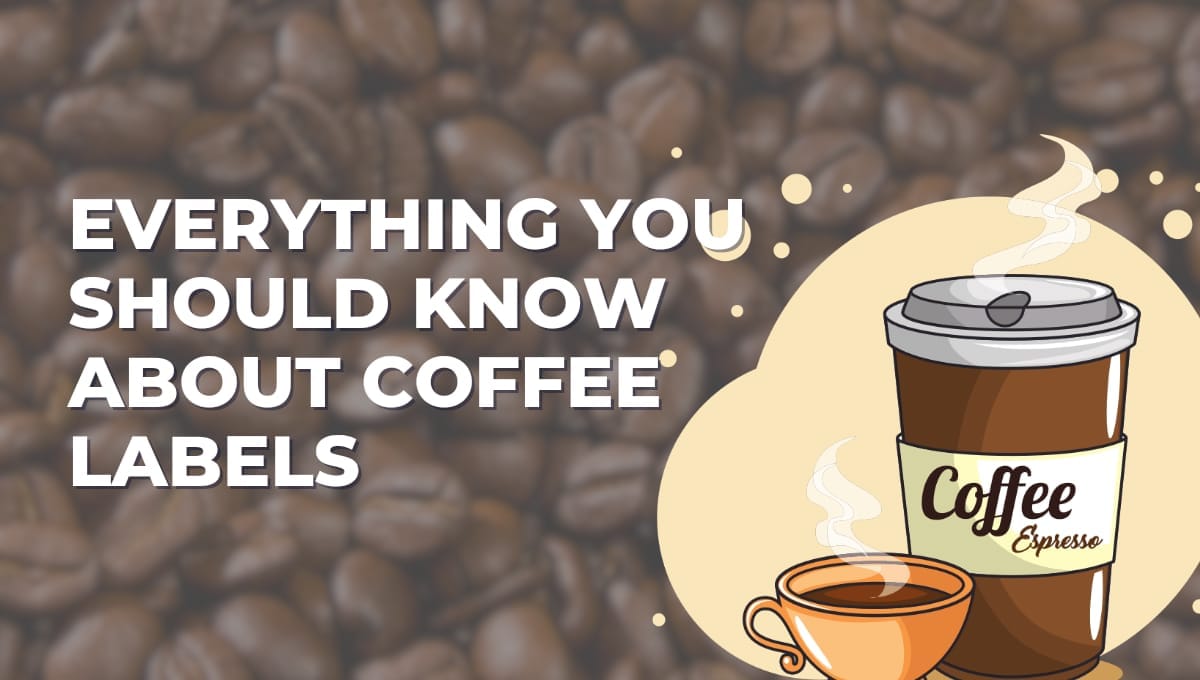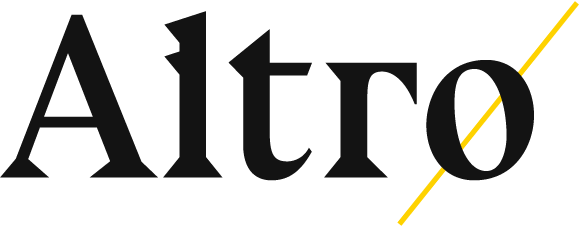Coffee Labels: What You Need To Know

Coffee businesses are booming nowadays. That's why they opt for unique coffee labels that strengthen their customer connection. Those cute little stickers or tags on coffee bags are so significant. They contain a lot of information and help customers make informed decisions about their coffee choices.
This article will give you everything you need to know about coffee labels. Knowing these is important because it will allow you to communicate with your audience and build trust in your brand.
So grab a cup of coffee and learn more about coffee labels.
What To Include On Coffee Labels
For coffee labels, coffee businesses must follow certain rules and regulations. However, these regulations may vary from country to country. It ensures that customers have access to accurate and essential information. Food and Drug Administration (FDA) sets the guidelines for coffee labels in the United States.
Before diving into advanced aspects of coffee labels, you should fulfill the mandatory requirements. Here are some of them which are a must for every coffee label.

Source: linkedin
Name of Product
The product's name tells the customer about the company. It should clearly and accurately represent the coffee being sold.
Customers can identify and choose coffee according to their unique preferences. So clearly tell if the coffee is
- Specific blend
- Single-origin
- Flavored variation
Barcode
There are a lot of coffee labels that feature barcodes. What are barcodes?
They are unique patterns of line. When scanned, they provide information and play a great role in point-of-sale systems.
Barcodes allow easy and efficient inventory management. The checkout process becomes seamless and hassle-free. Businesses can track sales and stock levels and improve overall operations with barcodes.
All Ingredients Used
Every product label should include an ingredient list; coffee labels are no exception. They should add a list of ingredients, including flavored or specialty coffees.
It's crucial for customers who might have allergic reactions or dietary restrictions to certain ingredients. This includes additives, flavorings, or substances used during coffee manufacturing.
Information Related To the Company
Always add the country of origin, which tells where the coffee beans were grown and harvested. This information is essential for coffee lovers who appreciate unique flavors associated with specific places. Thus, customers can support coffee-manufacturing countries.
Net Weight Of The Product
The net weight of the product doesn't include the weight of the packaging. It refers to the coffee inside the package. Usually, it's displayed in ounces, grams, or pounds.
It allows customers to estimate how much coffee they are purchasing and compare it with other products in the market.
Specific Coffee Label Elements

Source: mistobox
The above information is a must-have for all sorts of coffee labels. It tells us that some information is mandatory, and others are placed on the label under certain conditions.
All mandatory elements are placed on the front side of the coffee packaging. It also includes claims that are most commonly on the coffee labels. But you can't paste a claim without permission. Suppose you want to add a claim for Fresh, Premium Quality, or Organic coffee. In that case, you need permission from the authority inspection and regulation agencies. They'll decide if the claim meets the requirements.
- Organic: It is certified by the USDA. It eliminates the GMOs and any other synthetic substances. It means that the land is farmed with renewable resources.
- Fair Trade: It ensures that there is sustainable land cultivation. Furthermore, the usage of harmful substances, pesticides, and fertilizers was completely prohibited. Thus providing farmers with a fair share of their hard work.
- Rainforest Alliance: Coffee is grown in the canopy shade. Pesticides are used sparingly, and the farmers and workers are treated well.
Further Claims To Grab Customer Attention
Several other claims can be added to attract more customers to your coffee labels. Here is a quick overview of these common claims.
Selecting Perfect Coffee Label Materials
You can choose from several custom coffee labels. However, it is important to decide what aligns with your brand requirements.
Paper Labels
Paper labels are a versatile and affordable option for coffee packaging. If you want coffee bags, tins, or cardboard boxes, paper labels work really well. You can print paper labels with different finishes, like matte or glossy. That's how achieving your coffee label's desired look and feel becomes easy. These are good for long-term as well as short-term usage, but the coating and adhesives used play a great role in their longevity.
Film Labels
These are also known as synthetic labels. They are manufactured from materials such as polypropylene or polyester. They are durable and highly resistant to materials like oil and water.
Generally, coffee owners use it in coffee bags, especially those that need to be waterproof. Suppose you have a coffee brew that must be kept safe from varying temperatures. In that case, film labels are an ideal choice, providing extra protection.
Foil Labels
They give the coffee labels a touch of elegance and a luxurious look. Do you know how?
Premium luxury brands often use foil labels because they are made from metallic or holographic materials. These labels are also compatible with several coffee packaging products, such as coffee tins, boxes, and bags. They elevate the overall appeal of the coffee products.
Clear Labels
The name suggests transparent labels, which allow the customer to see the product clearly. They are generally used in glassy or plastic coffee containers. But when should you use clear labels?
These are effective when the coffee itself is visually appealing. To make it more prominent, you should use clear labels for coffee products.
Die-Cut Labels
If you're looking for a unique-shaped label, choose die-cut labels. You can easily customize them according to your brand design and packaging.
The primary reason for using them is that they add uniqueness and visual curiosity to the coffee packages. When these are on retail shelves, they attract customers' attention because of their distinct shapes.
Effective Tips for Coffee Label Success
You must ensure that your coffee labels comply with industry standards. This is a critical step that leads to providing a positive experience for customers. Here are some effective tips you should follow to ensure your coffee labels grab customers' attention.
- Clear Branding: Ensure your brand name and logo are prominently displayed. Use consistent colors, fonts, and imagery that reflect your brand's identity.
- Transparency: Be honest about the product's characteristics and sourcing. Transparency builds trust with consumers. If possible, include QR codes or links to more detailed information online.
- Customer-Centric Information: Include brewing tips or flavor notes to help customers understand what to expect. Provide information on how to best store the coffee to maintain freshness.
- Sustainability: Highlight eco-friendly packaging and sustainable practices. Use recyclable or compostable materials if possible.
- Customer Feedback: Consider adding a section for customer reviews or testimonials. Provide contact information for customer service or feedback.
Wrapping Up
Understanding coffee labels is extremely important for coffee business owners. Labels can help you share the right information with your audience and make your product shine in the market. Make sure to add all the important elements to your coffee labels. Do your research and choose the right coffee custom labels. But all this will be in vain if you don't choose the right labeling company.
At Altro Labels, we provide unique labeling solutions to businesses that help them grow. Contact our team of experts now. Want to know more information about how to level up your labels?
As a business owner, we have created detailed guides on improving product labels. Click here to access these guides now.
